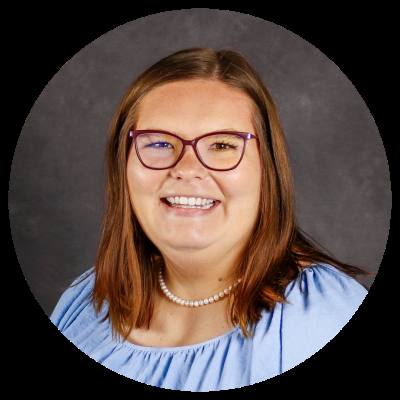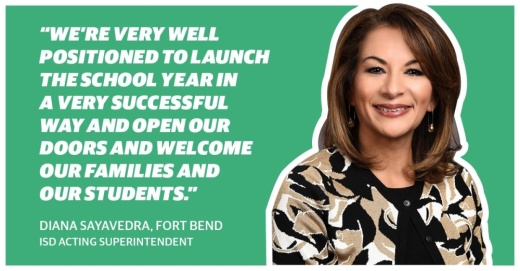Diana Sayavedra has been with Fort Bend ISD since 2016, first as chief academic officer and then as deputy superintendent. Since June 11, she has held the title of acting superintendent—replacing Charles Dupre, who resigned. FBISD is in the process of selecting a superintendent, with the second and final interviews taking place Aug. 17-20, according to district officials. When asked if she would be interested in the role, Sayavedra said her goal is to provide stability during the transition and successfully launch the 2021-22 school year.
What is the role of the acting superintendent and how does it differ from that of the permanent superintendent?
At this point, I am assuming all the roles of the superintendent. I have the full authority to run the day-to-day business of the school district. The difference ... when you think about an acting superintendent versus a superintendent is, it is a transition time to lead the organization, rather than holding the position [permanently] and taking the school district long term to the next level.
What would you tell parents who are concerned about starting the 2021-22 school year without a permanent superintendent?
I would share with those parents that there’s absolutely no reason for concern, although I acknowledge their concern. I understand that it can be somewhat unsettling for the district to be in this kind of transition. But I’ve been leading the instructional program for the school district since 2016. We’re very well positioned to launch the school year in a very successful way and open our doors and welcome our families and our students.
What are some of your priorities heading into the 2021-22 school year?
We’re looking forward to the fact that we’re going to be able to interact with students in a face-to-face environment because we know that is the environment in which they learn the best. I believe our delivery of instruction is going to be much more robust as we think about welcoming the kids back in a face-to-face environment. We also have very specific plans associated with tiered intervention for students who we know will require additional time and support. We also know that we’re not going to be able to address the learning loss in totality in one school year—it’s going to be something that we’ll need to do over time. We also know that we’re going to need to focus quite a bit on addressing students’ social and emotional needs and make sure that they have a good comfort level as they come back into the school building ... because we still will be dealing with some possible post-COVID[-19] effects.





